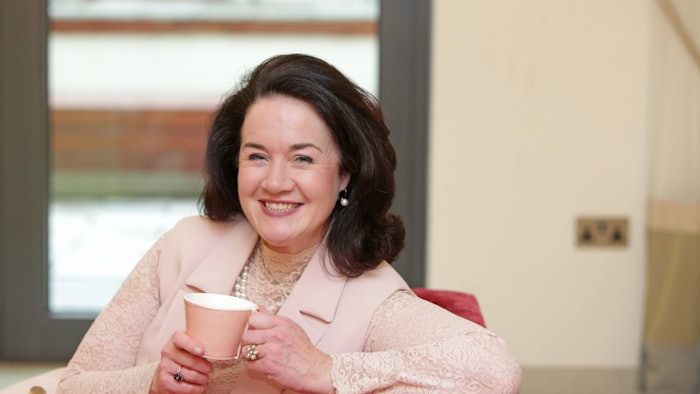In conversation with Ciara Feely

Our IMEX News editor talked to author and sales enablement strategist (and IMEX America speaker) Ciara Feely on menopause matters, elevating influence and unlocking success—all subjects covered by Ciara in her IMEX education sessions.
Q: As every woman has her own path through and different experience of perimenopause and menopause, what advice can you offer for women to better understand and embrace their unique journeys?
Educate yourself on the symptoms, then act on them, if needed. I didn't, unfortunately. I thought menopause was something I'd go through in my 50s. At age 47, I didn't even know what the perimenopause was. I was almost completely menopausal by the time I found out.
I kept trying to get on with things, but I felt there was a magnet on my back. It wasn't pulling me back, rather I felt something was stopping me from moving forward. Kit and I will discuss a few symptoms during our campfire.
Other advice would be to take the time to tune into yourself and to pause. I knew I had to do some deep listening to myself. You can't do that going at 100 miles an hour. That was key for me.
I've got more clarity now on what I need to do for me to be the best version of myself. This has led to more creativity, confidence and curiosity.
Q: Menopause is, it seems, finally becoming a subject that can be talked about openly at work. Have you seen this move beyond talk to positive empathetic action by employers?
I ran a workshop on menopause at MPI WEC this year. Almost 100 women were in the room. Not one had a menopause policy at their place of work, however. While that was disappointing, it leaves room for opportunity in an industry that is over 80% women.
Talking is leading to action, as awareness must be created first. I’m so happy IMEX is taking leadership in this way. Women at this stage of life have such wisdom, insights, attitudes and ideas to share. It’s so important companies don't lose that talent.
I've researched some great initiatives some companies are taking to support, nurture and, ultimately, help women to flourish during this time. It is also time for male allyship. An understanding that it is temporary and can be supported.
There are three areas to focus on to create a healthier work environment:
- Communication. Starting the conversation at work needs to be part of a culture and communication plan.
- Education. This takes the fear away. Some companies create internal ambassadors or champions that are trained to talk about it.
- Support. Do this so people feel comfortable asking for reasonable adjustments, such as controlling the temperature, opening windows, and having flexible working hours. A good general well-being policy is also sound business practice.
Q: Are there any resources you can recommend, or key takeaways you’ll share to help women better navigate this life stage?
There are some great resources out there. I received valuable insights from a podcast interview by Síle Seoige with Catherine O’Keeffe, an Irish wellness warrior. It covers the menopause from head to toe. We’ll share more at the campfire and we’ll also share the positive side and ways to flourish.
Q: Yesterday, you spoke at an IMEX education session on elevating the influence of events. Can you give us an insight into the strategies you shared?
In my work, I see too often that the conversation is around dates, rates and spaces instead of talking about the impact of the event. There’s a strategic reason why events are run. A reason that is being discussed at board level, by the C- Suite. The more the conversation is raised to that level, the more influence event professionals have.
It's a key mindset I help my clients to achieve and to develop their strategy and skill set around.
Q: You also talked about unlocking success. What do you believe are the key elements to this—particularly for the rapidly evolving events industry? Is it about, for example, embracing new event technology, focusing on client relationships or creating a culture of innovation?
Focusing on client relationships is what I've been helping sales teams do for 15 years. It future-proofs a business. If all else was equal, a client would decide based on the relationship. However, I feel all three are areas to find opportunities for success. It's getting the blend right that is key.
It's harder and harder to get a conversation with clients; conversations must be earned. Then you must be skilled enough to lead that conversation and listen, not do a sales pitch. Listening to understand rather than to respond is a skill I'd love to see people being more successful at.